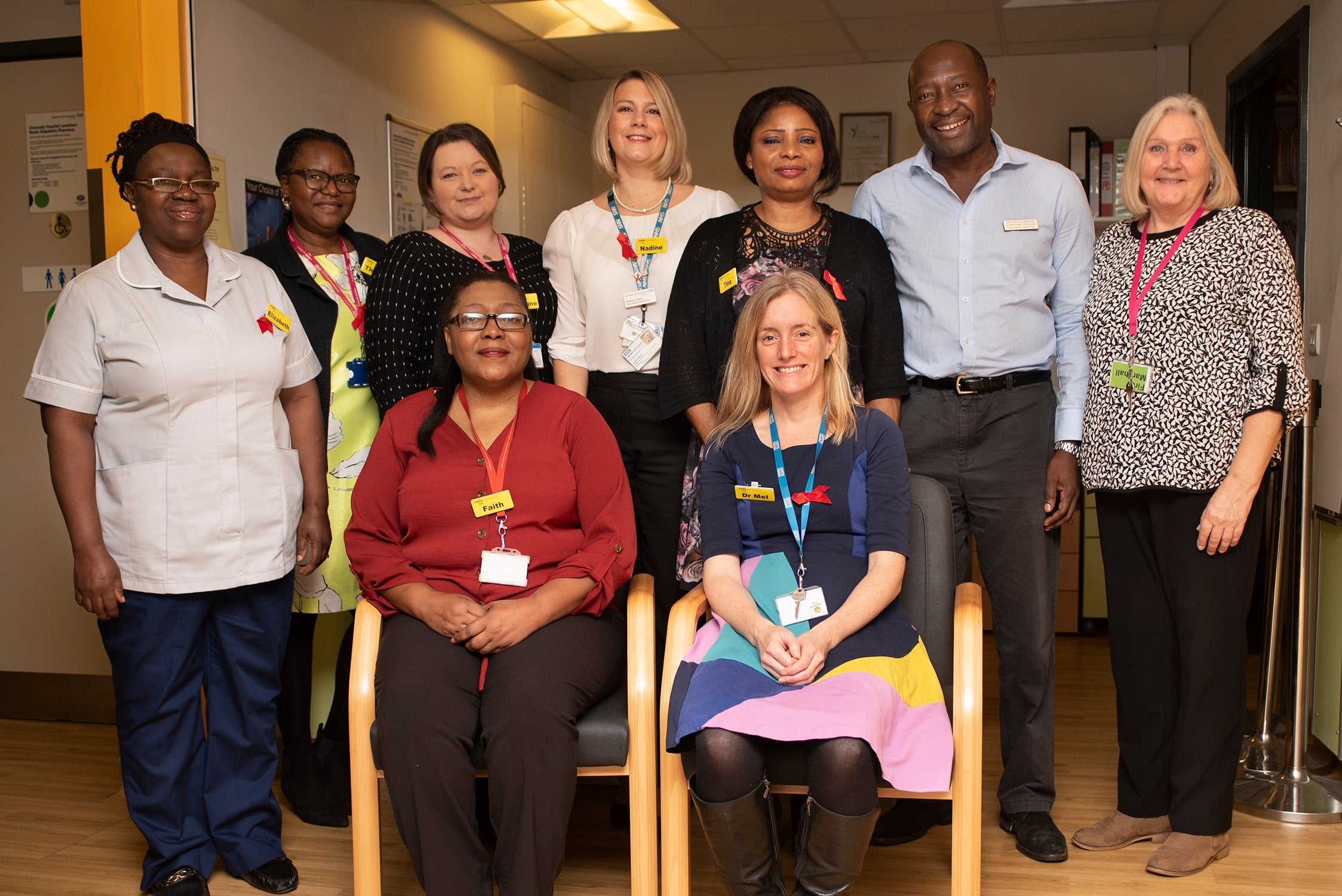AIDSfree: ‘We have patients who would rather die than be seen here’
Your donation can help shatter stigma over HIV and Aids and transform diagnosis

Your support helps us to tell the story
From reproductive rights to climate change to Big Tech, The Independent is on the ground when the story is developing. Whether it's investigating the financials of Elon Musk's pro-Trump PAC or producing our latest documentary, 'The A Word', which shines a light on the American women fighting for reproductive rights, we know how important it is to parse out the facts from the messaging.
At such a critical moment in US history, we need reporters on the ground. Your donation allows us to keep sending journalists to speak to both sides of the story.
The Independent is trusted by Americans across the entire political spectrum. And unlike many other quality news outlets, we choose not to lock Americans out of our reporting and analysis with paywalls. We believe quality journalism should be available to everyone, paid for by those who can afford it.
Your support makes all the difference.Jason buries his head in his hand as the nurse points her syringe at his arm. “Come on, don’t be a baby,” Thembi Moyo teases as the needle pricks through his skin. The 61-year-old is at the Alexis Clinic in Lewisham, south London, for his six-month check-up. He has been living with HIV for more than two years.
Six vials of his blood will be tested; the most important checks his “viral load” – the level of virus in his blood.
Recalling the day he was told of his diagnosis, Jason says: “It was a struggle mentally. I was in a relationship for six months and got it from her.”
Jason, who is using a pseudonym, is a heterosexual black man of African heritage. He is typical of the patients seen at the clinic at University Hospital Lewisham. There are 850 patients on the books. More than 50 per cent are heterosexual and most of African origin.
Many live on the poverty line and struggle with mental health problems. But the biggest challenge facing the team is the issue of stigma.
“The social stigma is more lethal than anything else,” says Moyo, a specialist HIV nurse. “We have patients from the African community who would rather die than be seen here.”
As a result, the staff – two consultants, a junior doctor, three nurses, one healthcare assistant, a pharmacist and dietician – deal with a lot of patients who receive their diagnosis and then go awol.
In their morning briefing, the team discuss a male patient who failed to turn up to appointments only to end up in A&E suffering from a host of severe medical problems. He essentially now “has Aids”, Dr Charles Mazhude, an HIV consultant, says.
Later, Dr Melanie Rosenvinge, the second HIV consultant running the clinic, was waiting for her 11am appointment who failed to show. “Many of our patients are living in extreme poverty,” she says. “When people are struggling to get enough money to eat, taking medication is not a priority.”
Dr Rosenvinge says the team often see people who are diagnosed so late they are “near death”. She never uses the term Aids, particularly with patients, but admits “people have it, people are still dying”. Medical breakthroughs mean those on HIV drugs are now unable to pass it on, making testing crucial to ending the epidemic.
A victory for Dr Rosenvinge was a pilot scheme funded by the Elton John AIDS Foundation – with whom The Independent has partnered for our AIDSfree Christmas charity appeal – which launched three weeks ago in the A&E department: everybody who has blood taken is automatically screened for HIV unless they opt out. She fought for funding for the programme for four years.
“This is huge for us,” she says. “The routine testing is so important, particularly for those who don’t identify with being as risk of HIV. We have a chance at getting people who are younger and at an early stage of the virus.”
In the reception area, two women embrace. Clinical nurse specialist Marcia Barnaby has not seen Patricia, not her real name, since she helped her through her diagnosis when she was pregnant with her son 14 years ago.
“It was a devastating diagnosis,” Patricia says. “I remember coming into the clinic. There was a nurse sitting in here peeling a large orange. There was something very peaceful in this: he was taking his time, there was no emergency. I knew then that I wasn’t going to die.”
Patricia says she was put on treatment during her pregnancy and her son was born HIV negative. “I owe my life to this clinic and my son’s.” Lewisham has one of the highest HIV prevalence rates in the country, with 1,693 diagnosed.
“There are a lot of people who come from high prevalence countries and know a lot about HIV but are not willing to talk about it because of stigma,” says Dr Mazhude. “We really need to reach out and get these diagnoses.”
Join our commenting forum
Join thought-provoking conversations, follow other Independent readers and see their replies
Comments